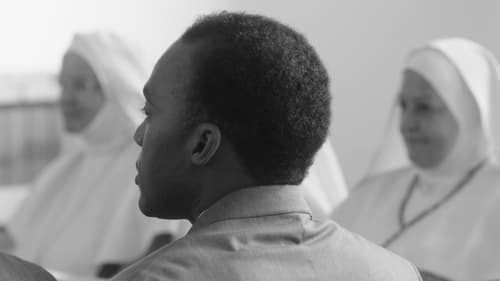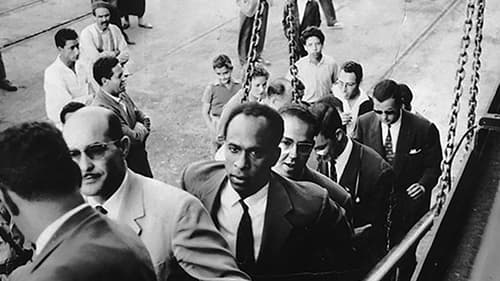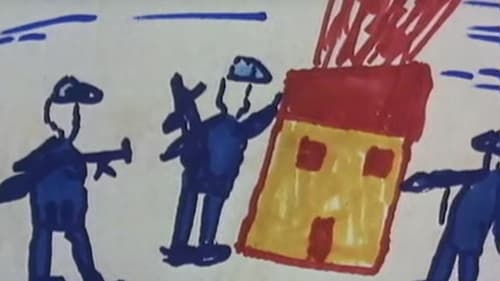Frantz Fanon
Рождение : 1925-07-20, Fort-de-France, Martinique, France
Смерть : 1961-12-06

Self (archive footage)
Frantz Fanon is a renowned politician and decolonialisation activist. This feature focuses on his visionary social therapy methods during his time as a psychiatrist in Algeria from 1953 to 1956. A piece of sober anti-racism.

Self (Archive footage)
Frantz Fanon alone embodies all the issues of French colonial history. Martinican resistance fighter, he enlisted, like millions of colonial soldiers, in the Free Army out of loyalty to France and the idea of freedom that it embodies for him. A writer, he participated in the bubbling life of Saint-Germain with Césaire, Senghor and Sartre, debating tirelessly on the destiny of colonized peoples. As a doctor, he revolutionized the practice of psychiatry, seeking in the relations of domination of colonial societies the foundations of the pathologies of his patients in Blida. Activist, he brings together through his action and his history of him, the anger of peoples crushed by centuries of colonial oppression. But beyond this exceptional journey which makes sensitive the permanence of French colonialism in the Lesser Antilles at the gates of the Algerian desert, he leaves an incomparable body of work which has made him today one of the most studied French authors across the Atlantic.

Book
Concerning Violence is based on newly discovered, powerful archival material documenting the most daring moments in the struggle for liberation in the Third World, accompanied by classic text from The Wretched of the Earth by Frantz Fanon.

Himself / Writer
In five parts, this documentary tells the story of the colonisation of the French Overseas Territories. Slave descendants, coloniser descendants, historians, admirals, rebellious writers and politicians recount a lasting past that keeps on igniting the economic and social relations of these territories even to this day.

Self (Archive footage)
Using archive material and present-day accounts, the recalls the life of the Afro-Caribbean psychiatrist, Frantz Fanon. In 1953, at the age of twenty eigh, Fanon was appointed head doctor at the psychiatric hospital in Blida-Joinville, a few kilometres from Algiers. As amedical student in Paris, he had been appalled by the living conditions of the Algerian immigrants and gave over the rest of his brief life to analysing the alienation of the black man, of colonised people and man in general. The forcefulness of his writing - as in Black Skin, White Masks and The Wretched of the Earth - and the pertinence of his reasoning still resonate strongly into today's world.

Self
Director Cheikh Djemai uncovers and interviews scores of former associates of Frantz Fanon, a psychiatrist, philosopher and political leader. He became a spokesman for the Algerian revolution against French colonialism, and as the author of Black Skin, White Masks, Fanon documented the effects of colonialism and racism on the people of colonized countries.

Original Story
Explores the life and work of the psychoanalytic theorist and activist Frantz Fanon who was born in Martinique, educated in Paris and worked in Algeria. Examines Fanon's theories of identity and race, and traces his involvement in the anti-colonial struggle in Algeria and throughout the world.

Original Story
The faces, the gestures and speech of beggars, madmen and revelers passing through the streets of São Paulo. The sounds and images are illustrated with Frantz Fanon extracts.

Writer
Adaptation of Franz Fanon's The Wretched of the Earth.

Writer
Algerian children, survivors of the war and refugeeing in Tunisian camps, recount the tragic events they have experienced, from drawings they have made themselves.







